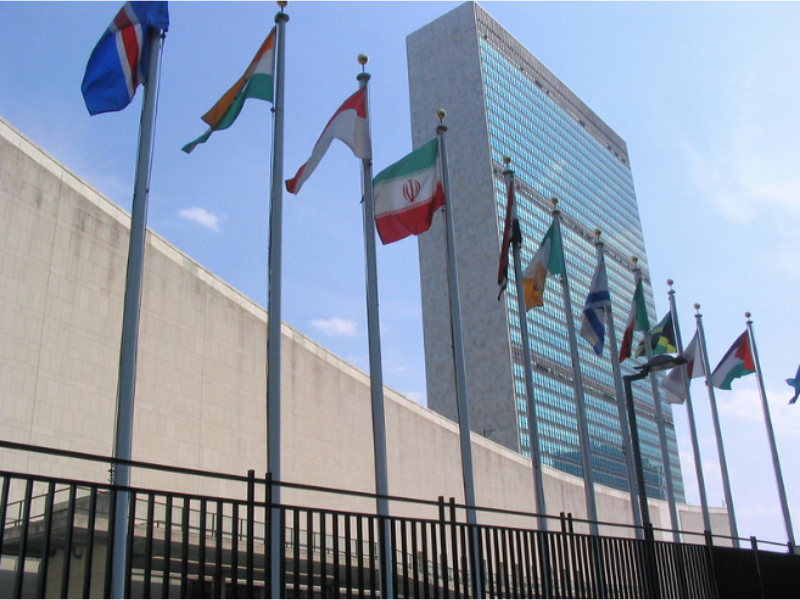
By The Conversation, August 3, 2023
In the wake of the Russian invasion and war in Ukraine, the United Nations (UN) appears to be preparing to resurrect a global disarmament process which was discontinued more than 30 years ago.
On July 18, the UN secretariat released its long-awaited “New Agenda for Peace”. This policy brief included recommendations by secretary general, António Guterres, on strategies to respond to current and future challenges facing humanity, such as poverty, climate change, pandemics, armed conflicts and threats against international peace and security.
To a warm response from the community of peacebuilders worldwide, the agenda contains practical advice on advancing a process of disarmament, by suggesting the reactivation of special sessions devoted to disarmament at the UN general assembly (SSOD).
UN special sessions on disarmament were held in 1978, 1982, and 1988, but a fourth never occurred. Since 2021, the activation of a fourth Special Session on Disarmament (SSOD-IV) at the UN general assembly has been the focus of the Strategic Concept for the Removal of Arms and Proliferation (Scrap Weapons), a disarmament project housed at SOAS University of London.
Scrap Weapons has also been supporting Brazil’s call for the same, made at the 2022 UN general assembly’s First Committee, which focuses on disarmament matters.
Disarmament machinery
For the disarmament agenda to progress, its machinery needs to be revisited. Current efforts at the Conference on Disarmament (CD) – the UN body tasked with negotiating treaties on weapons control – have stalled for almost 30 years because of a lack of consensus. This has been further conflated by an absence of political will and marred by geopolitical tensions and rivalries among member states.
In addition, unlike the Conference on Disarmament, a special session would be able to use the authority of the general assembly to create new mandates on a global zero option on missiles. It could also organise negotiations towards a general and complete disarmament (GCD) agenda, as per Scrap Weapons’ work on transparency mechanisms and a draft framework for a treaty on general and complete disarmament.
Defence spending on the rise
In the days that followed Russia’s invasion of Ukraine, many states increased their defence spending. In all, 29 European states pledged a total of more than US$209 billion (£163.5 billion) in new defence funding. Countries such as Germany, which had previously ruled out providing offensive weapons, reversed their defence policy.
While these pledges were made in response to the war as military aid, in reality, recent increases have been in line with preexisting trends, predicting an upward trajectory in global military spending. For the past eight years there has been a rise in global military expenditure, which reached a post cold-war peak of US$2.1 trillion in 2021, prior to Russia’s invasion of Ukraine.
These increases are generally portrayed as a necessary commitment to global security. But – particularly in the current climate – pursuing this path of rearmament is creating a potentially explosive security environment.
Russian president Vladimir Putin, his foreign minister Sergey Lavrov and his ally and former president Dmitry Medvedev have all made statements widely seen as threatening the use of nuclear weapons. Combined with an accelerating arms race in East Asia and continued conflict and civilian harm in Sudan, Ukraine, Yemen and beyond, it is clear that the world is becoming ever more dangerous.
Meanwhile, global military spending continues to rise and has passed an estimated US$2.2 trillion.
New Agenda for Peace
In light of this, there has never been a more pressing time for SSOD-IV to be adopted as part of the UN’s New Agenda for Peace. In a world plagued not only by threats to national security, but also global humanitarian crises ranging from a recent pandemic, increasing poverty and climate change, calls for a progressive disarmament process cannot be overstated.
The activation of an SSOD-IV would see to the development of a weapons control equivalent of the UN framework on climate change addressing climate chaos and serving as a platform for nations to reaffirm their dedication to a safer world. It would also be a critical forum to consider reforms of the wider disarmament machinery.
This thinking on disarmament desperately needs a general upgrade to incorporate contemporary concerns about cyberwarfare, AI, outer space and the renewed threats of the actual use of nuclear weapons. But attention also needs to be directed at the proliferation of conventional weapons – particularly small arms and light weapons.
With the recent release of the New Agenda for Peace policy brief, as a forward-thinking document paving the way for a revitalised UN, the implementation of disarmament processes more suited to our current era seems possible. The activation of a special session on disarmament could allow for the development of an effective programme of peace and prevention.
This must take into account the complex existing relationship between global development and disarmament. Humanitarian needs must be prioritised over investment into the military industrial complex.
But for the first time in 30 years, mentions of a special session on disarmament in the UN’s New Agenda for Peace make a renaissance in disarmament look possible. This opens up the space to include the global south at the decision table, so that a plan for the future security of the world involves the whole world, not just wealthy and powerful nations.
When the threat of the use of nuclear weapons in conflict is again raised, as it has been in Ukraine, it’s all the more urgent that the nations of the world cooperate to avoid this terrible prospect.
As Robert Oppenheimer, the “man behind the bomb”, noted in his 1948 Foreign Affairs essay in which he lamented that nuclear technology, which had such possibilities for good, was being turned into a tool for mass destruction: “We must ask ourselves why in a matter so overwhelmingly important to our interest we have not been successful.”








